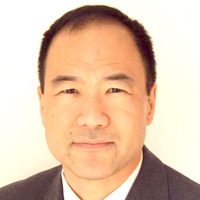By Mark Lee
For Northwest Asian Weekly
Justin Zhu co-founded a startup company called Iterable, which does cross channel marketing and also previously served as its CEO. He is credited with leading the startup toward a $2 billion valuation—however last year, he was fired.
The reasons given included an incident back in 2019 where he took a microdose of LSD prior to a meeting with an investor, which the company claimed was a violation of policy and a basis to terminate his employment.
Zhu has filed a lawsuit against the company and asserted that the reasons given by the company are a pretext or cover up for the real reasons for the termination, which included discrimination against him because he is Chinese American. Zhu described comments made in reference to him not looking like an enterprise CEO, and that when the company got bigger, it will want a white CEO. In board meetings, he would allegedly hear comments such as him not being “passionate enough,” “not forceful enough,” “conflict averse,” and needing “more presence”—which are common stereotypes about Asian Americans.
The comments described are similar to the personality test comments that Harvard used to downgrade Asian applicants that came to light in a different lawsuit involving other parties currently pending against Harvard in the U.S. Supreme Court. Harvard consistently rated Asian American applicants with lower scores than other races on traits such as “positive personality,” likability, courage, kindness, and being “widely respected.”
Comments like this don’t pass the basic smell test. They are highly suspect as being fabrications to try to justify racist discrimination. The comment claiming that Zhu lacked passion is contradicted by comments made by Andrew Boni, the co-founder who replaced Zhu. In an email to staff, Boni said that Zhu’s firing was over unspecified violations of the “Iterable’s Employee Handbook, policies, and values,” and commented that his behavior “undermined the board’s confidence’’ in him as a leader. But he also called Zhu a “world-class innovator and creative thinker” whose “vision, creativity, and passion will remain a core part of our culture.”
In addition to co-founding a company, Zhu also started a civil rights organization called Stand with Asian Americans. The organization was started up in large part in response to a series of violent hate crimes against Asians, including a shooting spree in Georgia where eight people were killed.
When most people hear LSD, they probably think of stoner drug addicts. However, this was not Zhu’s purpose in using LSD. He had attended an investor’s wedding in 2019 where he met an entrepreneur who told him about her experience with a medical study in California that involved microdosing LSD to prevent Alzheimer’s disease. Zhu’s grandmother had Alzheimer’s, so he paid attention. Over the past decade, there has been an increase in clinical tests of LSD for use in treating mental health conditions such as depression.
Zhu had been experiencing emotional strain as the company was going through a challenging round of fundraising efforts. After learning about the healing effects of LSD, he took a microdose in 2019. He wanted to do everything he could to make the company successful and believed that this would help.
A growing number of young professionals in Silicon Valley have referred to taking small doses of psychedelic drugs such as LSD to help them become more creative and focused. Both Steve Jobs and Bill Gates experimented with LSD.
Regardless, it is an oversimplification to say that Zhu was incompetent because he took LSD when you consider that the company was doing well under his leadership .
When I learned of this case and of the organization that Zhu helped to start, I went to the “Stand with Asian Americans’’ website. It has a questionnaire where people can report workplace discrimination and can request support. It also lists a number of public figures as supporters, including basketball player Jeremy Lin, actor George Takei, former Gov. Gary Locke, and former president George W. Bush.
I am a lawyer who represents employees in discrimination cases in Washington state. Although Zhu’s case occurred in California, and has a number of unique facts, the basic pattern asserted in the lawsuit regarding pretext and attempts to undermine the employee is something that occurs in many discrimination cases.
Our country has laws and rules in place to prevent discrimination. However, it is always up to individual people to take a stand and make these principles a reality like Justin Zhu has done.
Mark Lee is a guest columnist and former opinion column writer for the paper. He is also a lawyer in Bellevue that represents employees in discrimination cases. Mark can be reached at mslatty@yahoo.com.


